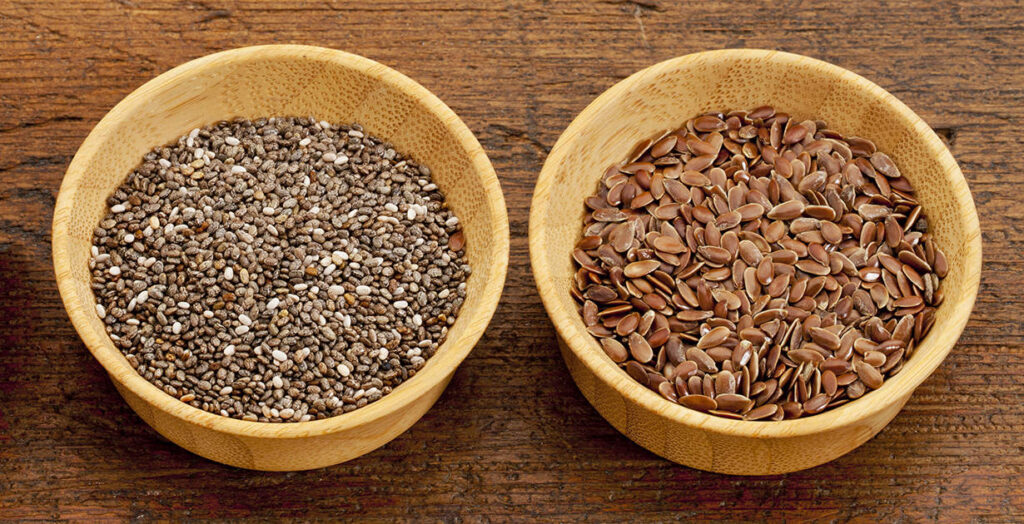The Mediterranean diet, inspired by the traditional eating patterns of countries bordering the Mediterranean Sea, has garnered international acclaim for its potential health benefits and delicious flavors. Rooted in a rich tapestry of fresh, locally sourced ingredients, this dietary approach extends beyond mere sustenance, emphasizing a holistic lifestyle that embraces not only what is on the plate but also the social and cultural aspects of dining. In this detailed exploration, we will dive deep into the key principles & protocols, health benefits, and pro tips to implement the Mediterranean diet. Let’s get started.
Also Read: Keto Diet: A Beginner’s Guide to Ketogenic Diet
Principles of the Mediterranean Diet
Abundance of Plant-Based Foods
Mediterranean diet places a spotlight on a colorful array of fruits and vegetables. These plant-based foods are rich in vitamins, minerals, fiber, and antioxidants. They form the cornerstone of meals, contributing to overall health and well-being. Moreover, embracing whole grains like whole wheat, brown rice, and quinoa provide complex carbohydrates and additional fiber.
These grains offer sustained energy and are integral to this diet’s nutritional profile. Lastly, legumes, including beans, lentils, and chickpeas, are excellent sources of plant-based protein and fiber. They contribute to satiety and provide a versatile foundation for various Mediterranean dishes.
Healthy Fats are Must
Olive oil, often referred to as “liquid gold,” is a hallmark of the Mediterranean diet. Rich in monounsaturated fats and antioxidants, olive oil is used for cooking, dressing salads, and adding flavor to a variety of dishes. Additionally, almonds, walnuts, flaxseeds, and chia seeds are staples in this diet.

These nutrient-dense additions provide healthy fats, protein, and essential vitamins and minerals. Furthermore, we can’t forget the fish, particularly those rich in omega-3 fatty acids like salmon, mackerel, and sardines. All these different types of fats support cardiovascular health and are a delicious and nutritious component of Mediterranean cuisine.
Lean Protein Sources
Fish and seafood take center stage as lean protein sources. The Mediterranean diet emphasizes the consumption of fish at least twice a week, promoting the benefits of omega-3 fatty acids for heart health as we already discussed. Poultry, including chicken and turkey also provides lean protein.

These options are versatile and can be prepared in various ways, complementing the diverse flavors of this diet. Then, we have eggs too – great source of high-quality protein and are valuable component. They can be prepared in different styles, adding nutritional value to meals.
Dairy in Moderation
Cheese, often enjoyed in moderation, contributes to the Mediterranean diet’s flavor profile. Varieties like feta and goat cheese are popular choices, adding richness to salads, pastas, and other dishes. Greek yogurt, known for its creaminess and probiotic content, is also a staple in this diet. It serves as a versatile ingredient and a delightful accompaniment to various dishes.

Abundance of Fresh Herbs and Spices
The Mediterranean diet relies on a variety of herbs such as basil, oregano, rosemary, thyme, and parsley. These aromatic additions enhance flavor without the need for excessive salt, contributing to the diet’s heart-healthy profile. Spices like garlic, cumin, and paprika add depth and complexity to Mediterranean dishes. Beyond their culinary appeal, these spices are associated with potential health benefits.
Wine in Moderation
Red wine, enjoyed in moderation, is a quintessential part of the Mediterranean dining experience. The antioxidants, particularly resveratrol, found in red wine are associated with potential cardiovascular benefits.

Social and Cultural Aspects
The Mediterranean diet places importance on the social and cultural aspects of dining. Meals are enjoyed leisurely, encouraging individuals to savor each bite, engage in meaningful conversation, and foster a sense of community.
The use of seasonal and locally sourced ingredients is a fundamental principle. This practice not only enhances the freshness and flavor of meals but also aligns with sustainability and supports local agriculture.
Physical Activity
This type of diet is complemented by an active lifestyle. Regular physical activity, whether through walking, gardening, or other forms of exercise, is integral to the overall well-being promoted by this dietary approach.

Health Benefits of Mediterranean Diet
Cardiovascular Health
Olive oil, a cornerstone of the Mediterranean diet, is rich in monounsaturated fats. These healthy fats have been associated with improved cardiovascular health by reducing LDL (low-density lipoprotein) cholesterol levels and promoting heart health. In addition, regular consumption of fatty fish like salmon and mackerel provides omega-3 fatty acids, known for their anti-inflammatory properties.

Omega-3s contribute to cardiovascular health by reducing blood clotting, lowering triglyceride levels, and supporting overall heart function. Furthermore, the abundance of fruits and vegetables in this diet introduces a variety of antioxidants, including vitamin C and E, which contribute to reducing oxidative stress and inflammation, key factors in cardiovascular diseases.
Weight Management and Obesity Prevention
The Mediterranean diet, rich in whole grains, legumes, fruits, and vegetables, is inherently high in dietary fiber. Fiber promotes satiety, helping individuals feel fuller for longer periods and reducing the likelihood of overeating, thus supporting weight management.

Emphasis on lean protein sources, such as fish, poultry, and legumes, provides essential nutrients without the excessive saturated fat content often associated with red meat. This approach aligns with maintaining a healthy weight.
Diabetes Prevention
The Mediterranean diet favors complex carbohydrates from whole grains, contributing to better blood sugar control. This may reduce the risk of type 2 diabetes and support individuals managing existing diabetes.

Studies suggest that this type of diet may enhance insulin sensitivity, helping the body regulate blood sugar more effectively. The diet’s nutrient-dense, balanced approach contributes to overall metabolic health.
Cognitive Function
The omega-3 fatty acids found in fatty fish, a prominent component of the Mediterranean diet, have been associated with cognitive function. These fats support brain health, potentially reducing the risk of cognitive decline and neurodegenerative diseases.
The diet’s emphasis on antioxidant-rich foods, including fruits, vegetables, and olive oil, provides neuroprotective benefits. Antioxidants help combat oxidative stress, a contributing factor to cognitive decline.
Cancer Prevention
The Mediterranean diet’s rich array of antioxidants and anti-inflammatory compounds may contribute to a reduced risk of certain cancers. The combination of colorful fruits, vegetables, and olive oil aligns with cancer prevention strategies. Whole, unprocessed foods in this diet contain phytochemicals and bioactive compounds that have been studied for their potential protective effects against various types of cancer.

Longevity
Regions where the Mediterranean diet is traditionally followed, such as parts of Greece and Italy, have been associated with increased longevity. The diet’s emphasis on nutrient-dense foods, healthy fats, and an overall balanced approach contributes to healthy aging.
Lifestyle Factors
Beyond dietary choices, the Mediterranean lifestyle includes regular physical activity, social engagement, and leisurely dining. These factors collectively contribute to a holistic approach to well-being and increased life expectancy.
Adopting the Mediterranean Diet
- Prioritize fresh fruits, vegetables, whole grains, nuts, and seeds. Minimize the consumption of processed and refined foods.
- Replace saturated fats with olive oil for cooking and dressing. The monounsaturated fats in olive oil are a hallmark of the Mediterranean diet.
- Aim to include fish and seafood in your meals at least twice a week. Fatty fish like salmon, sardines, and mackerel are rich in omega-3 fatty acids.
- Red meat should be consumed in moderation. Choose lean cuts and consider plant-based protein sources like legumes. Minimize processed foods and focus on whole, unprocessed options.
- Embrace the diversity of fruits and vegetables available. Aim to include a colorful array in your meals to maximize nutrient intake.
- If you choose to drink alcohol, do so in moderation. One glass of red wine per day for women and up to two glasses for men is typically considered moderate.
- Meals are not just about sustenance; they are an opportunity for connection. Embrace the social and cultural aspects of dining by enjoying meals with family and friends.
Also Read: Paleo Diet: A Guide to The Primal Approach to Nutrition!
Conclusion
The Mediterranean diet offers a delectable journey to health and well-being, emphasizing the pleasure of eating while reaping a multitude of potential health benefits. Rooted in a rich culinary tradition, this dietary approach combines the wisdom of the past with modern nutritional insights. From heart health to longevity, the Mediterranean diet continues to captivate the world with its delicious flavors and holistic approach to nourishment. As with any dietary change, it’s advisable to consult with healthcare professionals, especially for individuals with specific health conditions or dietary requirements. So, embrace this diet not just as a set of guidelines but as a lifestyle that celebrates the art of savoring each bite and fostering a sense of community around the table. Hopefully, you found this article helpful enough. If you really did then let us know your valuable thoughts in the comment section below. Thanks for visiting and appreciating our work.
